Filter by
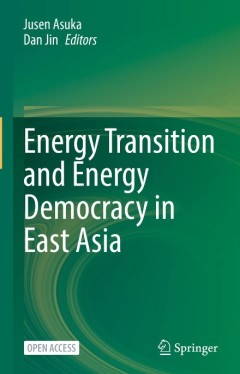
Energy Transition and Energy Democracy in East Asia
This is an open access book. The subject of this book is to provide down-to-earth information on what kind of actions are being taken by the Government, Local community, Businesses, Researchers, NGOs on the energy transition in this region. It gives an updated picture of the energy transition in the East Asian countries, where the economic growth, as well as CO2 emission growth, is significant…
- Edition
- -
- ISBN/ISSN
- 9789811902802
- Collation
- ix, 117 p.
- Series Title
- -
- Call Number
- 333.7 ENE J
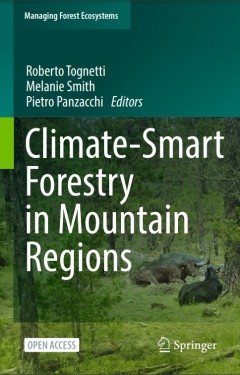
Climate-Smart Forestry in Mountain Regions
This open access book offers a cross-sectoral reference for both managers and scientists interested in climate-smart forestry, focusing on mountain regions. It provides a comprehensive analysis on forest issues, facilitating the implementation of climate objectives. This book includes structured summaries of each chapter. Funded by the EU’s Horizon 2020 programme, CLIMO has brought togethe…
- Edition
- 12
- ISBN/ISSN
- 9783030807672
- Collation
- xxiii; 574p; ill.
- Series Title
- -
- Call Number
- 634.9 CLI R
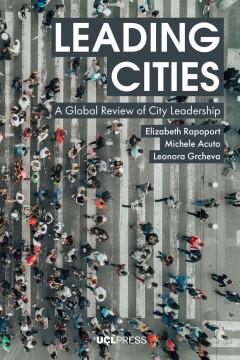
Leading cities : a global review of city leadership
Leading Cities is a global review of the state of city leadership and urban governance today. Drawing on research into 202 cities in 100 countries, the book provides a broad, international evidence base grounded in the experiences of all types of cities. It offers a scholarly but also practical assessment of how cities are led, what challenges their leaders face, and the ways in which this lead…
- Edition
- -
- ISBN/ISSN
- 9781787355453
- Collation
- xiii, 119p. ill;
- Series Title
- -
- Call Number
- 320.85 LEA E
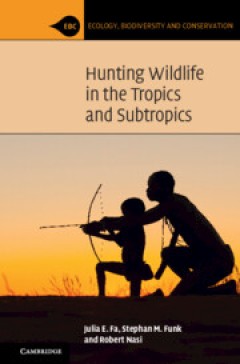
Hunting Wildlife in the Tropics and Subtropics
The hunting of wild animals for their meat has been a crucial activity in the evolution of humans. It continues to be an essential source of food and a generator of income for millions of Indigenous and rural communities worldwide. Conservationists rightly fear that excessive hunting of many animal species will cause their demise, as has already happened throughout the Anthropocene. Many specie…
- Edition
- -
- ISBN/ISSN
- 9781316338704
- Collation
- xxi, 436 p ; ill
- Series Title
- -
- Call Number
- 333.95416 HUN
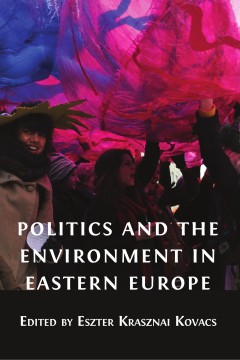
Politics and the environment in Eastern Europe
Europe remains divided between east and west, with differences caused and worsened by uneven economic and political development. Amid these divisions, the environment has become a key battleground. The condition and sustainability of environmental resources are interlinked with systems of governance and power, from local to EU levels. Key challenges in the eastern European region today include …
- Edition
- -
- ISBN/ISSN
- 9781800641341
- Collation
- xii, 325p. : ill.
- Series Title
- -
- Call Number
- 363.700947 KRA p
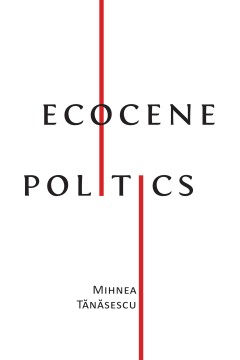
Ecocene Politics
Anchored in the diverse ecological practices of communities in southern Italy and Aotearoa/New Zealand, this book devises a unique and considered theoretical response to the shortcomings of global politics in the Ecocene—a new temporal epoch characterised by the increasingly frequent intrusion of ecological processes into political life. Dismantling the use of the term ‘Anthropocene’ as a…
- Edition
- -
- ISBN/ISSN
- 978-1-80064-316-1
- Collation
- vii, 195p.
- Series Title
- -
- Call Number
- 363.7 TAN e
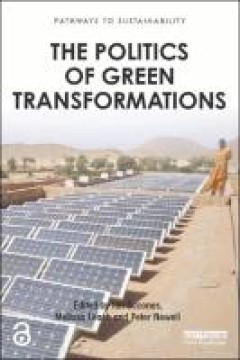
The politics of green transformations
Multiple ‘green transformations’ are required if humanity is to live sustainably on planet Earth. Recalling past transformations, this book examines what makes the current challenge different, and especially urgent. It examines how green transformations must take place in the context of the particular moments of capitalist development, and in relation to particular alliances. The role of th…
- Edition
- -
- ISBN/ISSN
- 9781315747378
- Collation
- xv, 238 p. : ill.
- Series Title
- -
- Call Number
- 320.58 SCO t
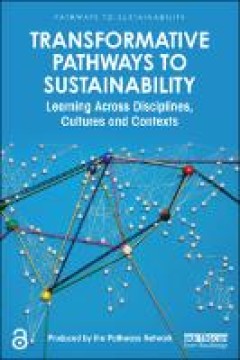
Transformative pathways to sustainability : learning across disciplines, cult…
Transformations to sustainability are increasingly the focus of research and policy discussions around the Sustainable Development Goals. However, the different roles played by transdisciplinary research in contributing to social transformations across diverse settings have been neglected in the literature. Transformative Pathways to Sustainability responds to this gap by presenting a set of co…
- Edition
- -
- ISBN/ISSN
- 9780429331930
- Collation
- xxviii, 237 p. : ill
- Series Title
- Pathways to Sustainability
- Call Number
- 338.927 THE t
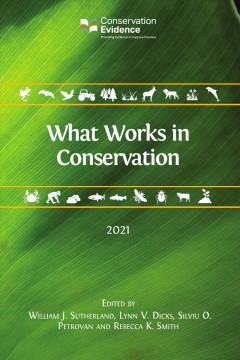
What works in conservation 2021
Does the creation of artificial reefs benefit subtidal benthic invertebrates? Is the use of organic farming instead of conventional farming beneficial to bat conservation? Does installing wildlife warning reflectors along roads benefit mammal conservation? Does the installation of exclusion and/or escape devices on fishing nets benefit marine and freshwater mammal conservation? What Works…
- Edition
- -
- ISBN/ISSN
- 9781800642744
- Collation
- 961 p. : ill. ; 24 cm
- Series Title
- -
- Call Number
- 333.9516 WHA w
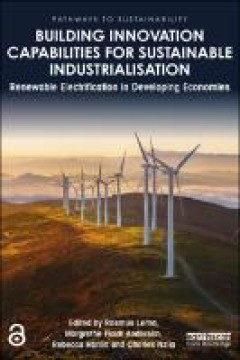
Building innovation capabilities for sustainable industrialisation: renewable…
This book argues that renewable electrification in developing countries provides important opportunities for local economic development, but new pathways are required for turning these opportunities into successful reality. Building Innovation Capabilities for Sustainable Industrialisation offers a novel input into the debate on development of capabilities for sustainable industrialisation and …
- Edition
- -
- ISBN/ISSN
- 9781003054665
- Collation
- xxi, 280 p . : ill.
- Series Title
- Pathways to Sustainability
- Call Number
- 333.7091724 LEM b
 Computer Science, Information & General Works
Computer Science, Information & General Works  Philosophy & Psychology
Philosophy & Psychology  Religion
Religion  Social Sciences
Social Sciences  Language
Language  Pure Science
Pure Science  Applied Sciences
Applied Sciences  Art & Recreation
Art & Recreation  Literature
Literature  History & Geography
History & Geography